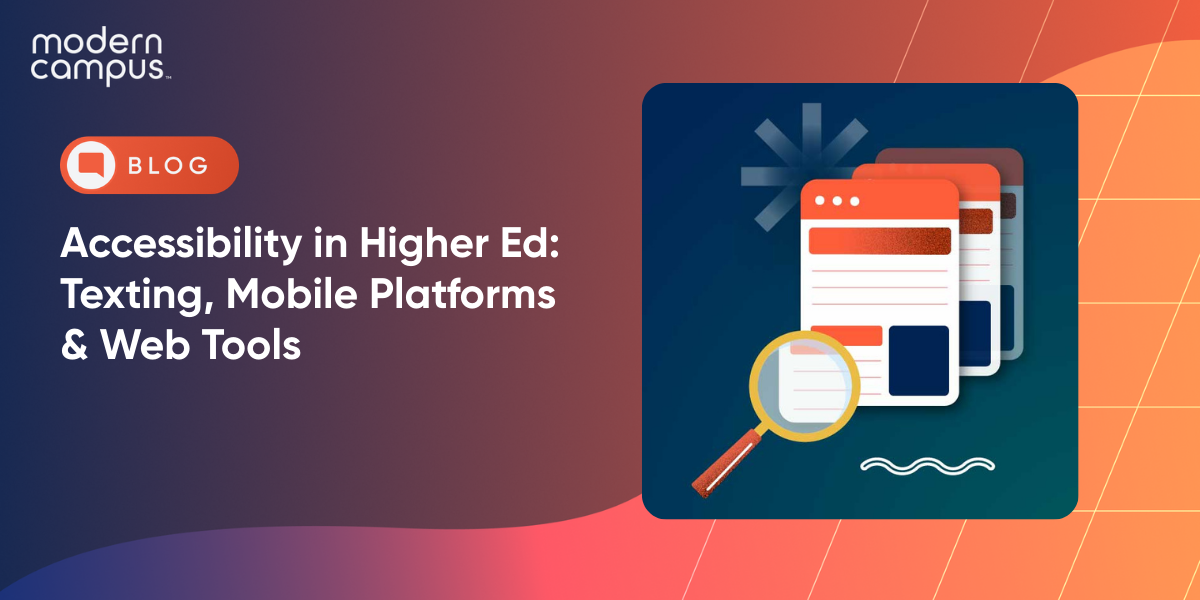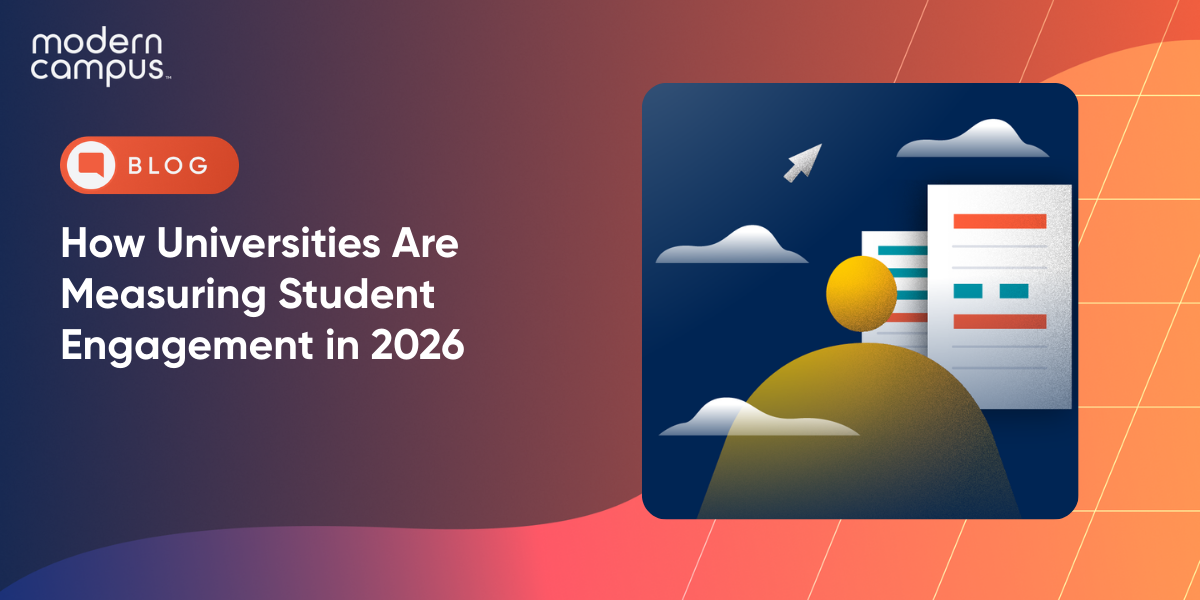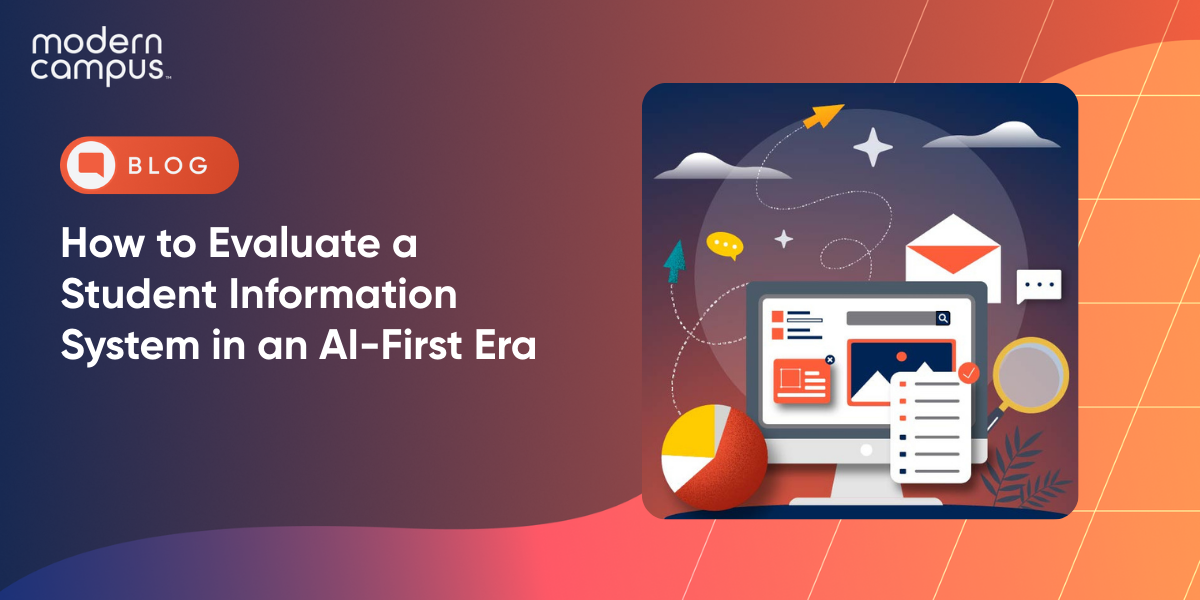Why and How to Improve Customer Service in Higher Ed
Universities and colleges are increasingly viewing students as customers. Institutional leaders, staff and faculty recognize the importance of providing high-quality customer service to students throughout the academic journey — from initial discovery of the institution, to enrollment and beyond. By understanding learners as customers, institutions can better meet their needs and expectations, leading to greater student satisfaction, retention and success.
In this blog post, we’ll unpack the reasons for this shift in perspective, explore the benefits of a customer service mindset and review strategies for implementation.
Understanding Students as Customers
Historically, students have been expected to adapt to their institution's practices, policies and culture with little compromise expected from the college or university itself.
But today’s students have high expectations for the educational experience, influenced by their interactions with other service-oriented industries. Digital natives, who grew up with reliable access to the internet and other digital technologies, have limited patience for administrative red tape and want to manage their own experiences as much as possible. They expect personalized attention, quick responses to inquiries, and convenient access to information and resources.
And as with most of their other day-to-day activities (including shopping, banking and setting appointments), they expect to be able to conduct many higher education services fully online.
Many learners also have competing responsibilities —including work, children care and eldercare — competing for their time and focus. They invest in higher education to realize specific outcomes, which they expect their institutions to deliver.
Institutions that meet — or better yet, exceed — these expectations can improve student satisfaction and loyalty, leading to increased retention, program completion and revenue.
Why Is Customer Service Important In Higher Education?
Providing excellent customer service in higher education can support:
- Student Retention: High-quality customer service can improve student retention rates by addressing challenges that may otherwise lead students to transfer to other institutions or stop out of higher education entirely.
- Enhanced Reputation: Positive experiences lead to positive reviews, word-of-mouth referrals and alumni engagement, all of which can enhance an institution's reputation and thereby attract prospective learners.
- Increased Engagement: Engaged students are more likely to participate in activities outside of the classroom than their unengaged peers. As this infographic demonstrates, such involvement benefits individual students and the institution as a whole by increasing students’ sense of belonging, enhancing skill development, promoting higher GPAs, increasing career readiness and more.
- Competitive Advantage: Institutions that work to better their customer service quality have a distinct advantage in attracting and retaining students. As the higher education marketplace gets more crowded, learners will take advantage of all the choices available and choose to enroll in institutions that meet their customer service expectations.
Strategies For Customer Service In Higher Education
Provide Academic Support
College and university instructors often have expectations that are appropriately higher than those of high school classes. Even the most intelligent, motivated and committed students might struggle to perform well and stay enrolled without reliable campus services.
Academic support services demonstrate the institution's commitment to student development and success, while giving students the tools, strategies and insights they need to excel inside the classroom. These services can include tutoring, study groups, academic advising, writing centers and technology services, among others. Institutional leadership should also consider how faculty can directly support student success through office hours, mentorship programs and remedial courses.
Address Administrative Concerns
By streamlining administrative processes, institutions can reduce student frustration and confusion, leading to more positive experiences on campus and off. Clear communication of policies and procedures, along with responsive support of administrative issues and plans for problem resolution, can help students navigate their academic journey more effectively.
Whenever possible, institutions should look to remove red tape, bring processes online and be transparent about every step within each administrative procedure.
Create A Positive Campus Experience
Fun opportunities and comfortable environments aren’t superfluous or merely “nice to have”; they’re essential for providing students with satisfactory customer experiences.
By offering superior campus events and co-curricular opportunities, fostering robust communities, and providing comfortable facilities, institutions can ensure their students feel supported and valued — as valued learners and as paying customers.
Streamline Communication Channels
Any business hoping to provide strong customer service must make it easy and accessible for customers to ask questions, find resources and provide feedback. This must also be true of colleges and universities.
By streamlining communication channels and ensuring that information is easily accessible, institutions can keep students informed, engaged and supported. Channels to offer or improve include your institution’s website, text messaging, email, social media, chat bots, apps and digital portal.
Today’s students have a variety of communication habits and preferences. Institutions that provide multiple options for reliably connecting with knowledgeable staff and smoothly obtaining information will meet high customer expectations.
Implement Personalized Student Support Services
No two students have the same schedule, needs or concerns. By offering tailored academic advising, counseling and support services, institutions can address the individual needs of students and provide them with the resources they need to succeed. Personalization can involve flexible appointment hours, digital and hybrid options, and on-demand resource access — all of which better support learners who commute to campus, have limited free time or have disabilities.
This personalized approach demonstrates that the institution values each student's unique journey and understands their evolving needs.
Enhance Technology Integration
Integrating technology into all aspects of student life can streamline staff processes and scale up services, thereby improving efficiency and convenience for students.
By implementing digital tools for communication, course materials and administrative tasks, institutions can streamline processes and provide students with easy access to information and resources. Modern Campus tools, for example, can help institutions accelerate curriculum development, simplify website development, make data-driven decisions about co-curricular programming, personalize one-to-one communication and connect students to their perfect course schedule.
Such integrations not only improve customer service but also promote interdepartmental collaboration, free up staff time to focus on additional initiatives and prepare students for success in a digital world.
Empower Student Feedback And Engagement
Empowering students to provide feedback and express their expectations is crucial for improving customer service.
By actively involving students in decision-making processes and inquiring about their experiences, institutions can not only demonstrate that they are committed to continuous improvement; they can also make improvements in line with student expectations, needs and habits. What’s more, this level of engagement can lead to a stronger sense of community and loyalty among students.
Prioritize Accessibility And Inclusivity
By prioritizing accessibility and inclusivity, institutions can create a welcoming environment for students from diverse backgrounds and ensure that all learners can fully participate and thrive.
Prioritizing accessibility can include providing accommodations like accessible buildings, assistive technology, captioned videos and alternative formats for course materials — all of which comply with laws like the Americans with Disabilities Act (ADA).
Inclusivity goes beyond mere access in ensuring that all students are recognized, appreciated and welcomed. This can mean designing services to meet the unique needs of first-generation college students, creating inclusive curriculum and programming, and fostering a sense of belonging for LGBTQIA+ students, students of color and other historically marginalized groups.
Building Long-Term Relationships With Alumni
Institutions that embrace a customer service mindset understand that their relationship with students shouldn’t end with graduation or degree obtainment.
By continuing to connect with alumni through regional events, volunteer opportunities, campus programs, newsletters and text messaging, colleges and universities build lifelong connections with leaders — which, in turn, can increase alumni donorship, grow mentorship programs, boost the institution’s reputation and promote enrollment in continuing education programs.
Conclusion
Providing excellent customer service isn’t bonus work; it’s essential for satisfying modern learner expectations, thereby enhancing student retention and success. By understanding students as customers and implementing strategies to intentionally meet specific needs, institutions can create positive and supportive learning environments that support their missions while increasing revenue and ensuring a sustainable future.
Last updated: May 28, 2024




